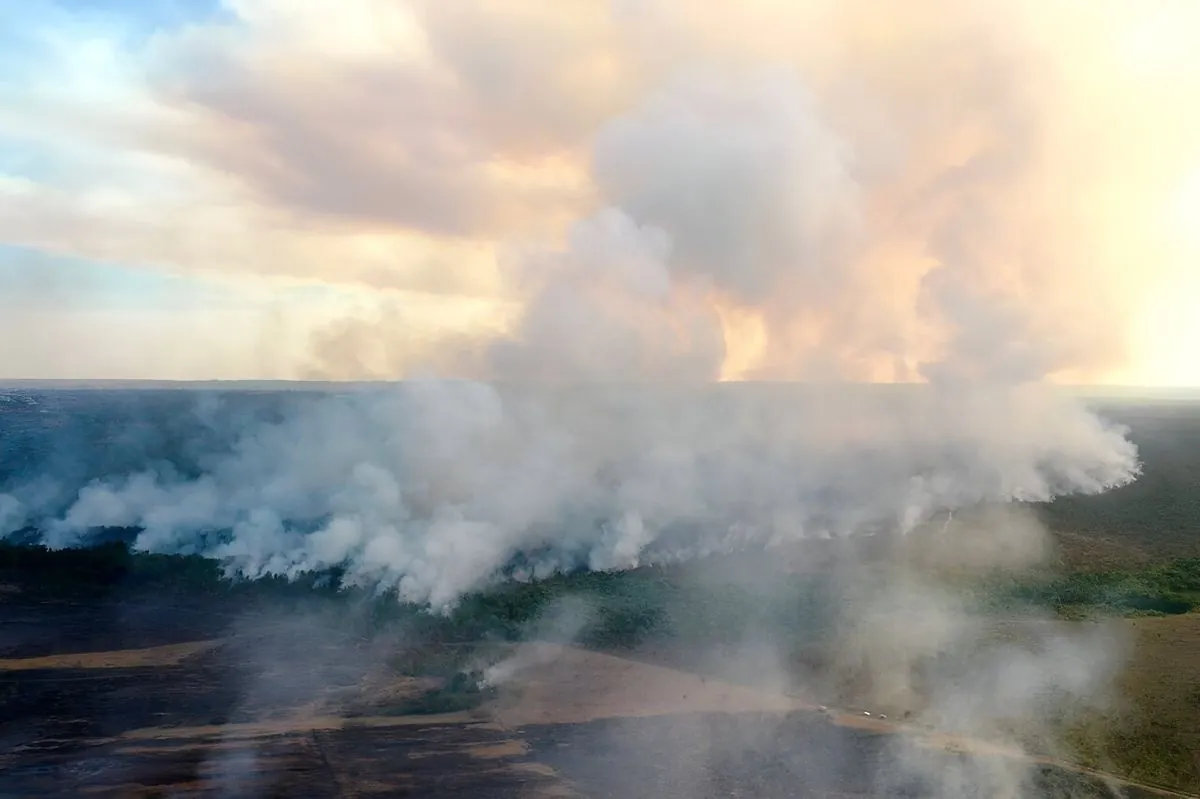In a concerning development, firefighters are currently combating a significant wildfire in Brasilia National Park, which has engulfed Brazil's capital city in smoke. This incident is part of a larger crisis as Brazil grapples with widespread fires and severe drought conditions.
The fire, which has already consumed 700 hectares (1,700 acres) of the conservation area, is being tackled by over 90 firefighters. Four aircraft, including two from the Federal District's military firefighting unit and two from the nearby Chapada dos Veadeiros national park, have been deployed to assist in the operation.
Established in 1961, Brasilia National Park covers an area of 42,389 hectares and is home to endangered species such as the maned wolf and giant anteater. The park's proximity to Brasilia, a city known for its modernist architecture and inaugurated in 1960, has raised concerns about the fire's impact on the capital's air quality.
Mauro Pires, head of ICMBio, the government agency managing the park, stated that the fire appears to be human-caused, originating near the edge of a farm. This has prompted a joint investigation by the Federal District's public security agency and the Federal Police to explore potential criminal actions.
The Brasilia National Park fire is not an isolated incident. Brazil is currently experiencing wildfires across multiple regions, including the Amazon rainforest, Cerrado savanna, and Pantanal wetlands. These areas are crucial for biodiversity, with the Amazon covering about 5.5 million square kilometers (60% in Brazil), the Cerrado being the world's most biodiverse savanna, and the Pantanal recognized as the largest tropical wetland globally.
Compounding the crisis is Brazil's worst drought in over 70 years, affecting 59% of the country – an area roughly half the size of the United States. Major rivers in the Amazon basin are registering historic lows, further exacerbating the fire risk.
President Luiz Inácio Lula da Silva, currently serving his third term, has responded to the crisis by conducting a flyover of the affected areas and announcing that the Federal Police have opened 52 investigations into potential environmental crimes. He is set to meet with the Environment Minister to discuss further actions in response to this climate emergency.
In support of these efforts, Supreme Court Justice Flávio Dino has issued a ruling authorizing the federal government to allocate extra funds for combating forest fires and hiring additional firefighters. This decision reflects the gravity of the situation and the need for immediate action.
The ongoing crisis in Brazil highlights the interconnectedness of climate change and extreme weather events. Scientists emphasize that the burning of fossil fuels is a primary driver of climate change, which in turn increases the likelihood of severe droughts and wildfires.
As Brazil faces these challenges, the country's commitment to zero illegal deforestation by 2030 as part of its climate change mitigation efforts becomes increasingly crucial. The current situation serves as a stark reminder of the urgent need for global action to address climate change and protect vital ecosystems.
"The Federal Police have opened 52 investigations against those responsible for the crimes against our country."
